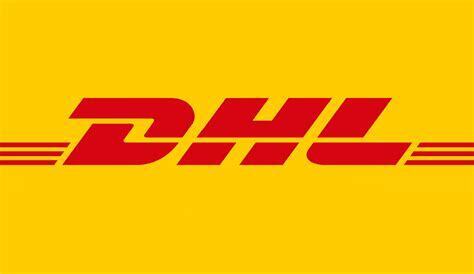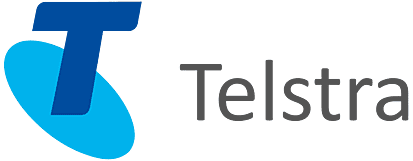In the intricate world of supply chain management, where efficiency, precision, and adaptability are paramount, an effective Human Resources (HRP) team can serve as a critical lever for success. The strategic alignment of HRP practices with the core objectives of a supply chain business can lead to significant improvements in operational performance and costs, employee satisfaction, and overall competitiveness.
Enhancing Recruitment and Retention
A supply chain business thrives on the expertise and dedication of its workforce. An effective HRP team ensures that the recruitment process is streamlined to attract top talent with the necessary skills and experience. By implementing robust selection criteria and leveraging technology for efficient hiring, HRP can reduce time-to-hire and ensure the right fit for each role. Moreover, retention strategies such as competitive compensation, career development opportunities, and a positive workplace culture are essential in maintaining a motivated and committed workforce (Cascio, 2016).
Training and Development and Induction
Continuous training and development and effective employee inductions are vital in a dynamic industry like supply chain management. HRP plays a crucial role in identifying skill gaps, effectively on-boarding new employees and providing relevant training programs to enhance employee capabilities. This not only improves individual performance but also boosts overall organisational efficiency. For instance, training in the latest supply chain technologies and methodologies can lead to better decision making and streamlined operations (Schuler & Jackson, 2014). Given supply chain is a very resourced based industry it is critical to continually roll-out effective leadership training.
Employee Engagement and Satisfaction
Employee engagement is a key driver of productivity and innovation. An effective HRP team fosters a work environment where employees feel valued and engaged. Regular feedback mechanisms, recognition programs, and opportunities for career progression contribute to higher levels of job satisfaction and loyalty. Engaged employees are more likely to go above and beyond in their roles, leading to enhanced productivity and reduced turnover rates (Hofstede, Hofstede & Minkov, 2010).
Compliance and Risk Management
Supply chain businesses operate in a complex regulatory environment with numerous compliance requirements. HRP ensures that the organisation adheres to labour laws, safety regulations, and industry standards. By implementing comprehensive compliance programs and regular audits, HRP mitigates risks and protects the business from potential legal issues and fines. This proactive approach to risk management is crucial in maintaining operational continuity and reputation (Brewster, Mayrhofer & Farndale, 2018).
Optimising Workforce Management
Effective workforce management is essential in the supply chain sector, where labour needs can fluctuate based on demand. HRP teams can implement flexible staffing models, such as temporary or contract workers, to manage peak periods without compromising service quality. Advanced workforce planning tools and analytics enable HR to forecast labour needs accurately and align them with business requirements, ensuring optimal resource utilisation and cost efficiency (Society for Human Resource Management, 2023).
Benefits to 3PL Providers' Customers
An effective HRP function within third party logistics (3PL) companies brings substantial benefits to their customers. Firstly, by ensuring that the workforce is well trained and highly skilled, HRP contributes to improved service quality , reliability and overall costs. This translates to fewer errors, faster turnaround times, and higher customer satisfaction.
Secondly, HR's focus on compliance and safety standards means that customers can trust their 3PL provider to handle goods safely and adhere to regulatory requirements, reducing the risk of supply chain disruptions and legal complications. This assurance is particularly critical in industries with stringent regulatory demands, such as pharmaceuticals and food logistics (Schuler & Jackson, 2014).
Moreover, the emphasis on employee engagement and retention results in a more stable and experienced workforce. Customers benefit from consistent service and the accumulated knowledge of long term employees who understand their specific needs and expectations. This continuity fosters stronger customer relationships and greater trust in the 3PL provider's capabilities (Hofstede, Hofstede & Minkov, 2010).
Finally, HRP's role in optimising workforce management ensures that 3PL providers can scale operations effectively to meet fluctuating demand. This flexibility allows customers to manage their inventory and distribution needs more efficiently, knowing their 3PL partner can adapt swiftly to changes in volume and complexity (Brewster, Mayrhofer & Farndale, 2018).
Conclusion
The role of an effective HRP team in a supply chain business cannot be overstated. From enhancing recruitment and retention to ensuring compliance and optimising workforce management, HRP practices directly impact the organisation's ability to achieve its strategic goals. By aligning HRP initiatives with the unique demands of the supply chain sector, businesses can drive operational excellence, foster a positive work environment, and maintain a competitive edge in the market. For 3PL providers, an effective HRP team not only enhances internal operations but also delivers significant benefits to customers, reinforcing the provider's value proposition and fostering long term partnerships.
Linq HR are Australian Employment and Workplace Specialists assisting organisations and employees be their best at work. Ph 1300234566.
References
Cascio, W. F., 2016. *Managing Human Resources: Productivity, Quality of Work Life, Profits*. 10th ed. New York: McGraw-Hill Education.
Hofstede, G., Hofstede, G. J. & Minkov, M., 2010. *Cultures and Organizations: Software of the Mind*. 3rd ed. New York: McGraw-Hill Education.
Schuler, R. S. & Jackson, S. E., 2014. *International Human Resource Management: Policies and Practices for Multinational Enterprises*. 5th ed. New York: Routledge.
Society for Human Resource Management (SHRM), 2023. *Industry Specific HR Practices*. Available at: <https://www.shrm.org/ResourcesAndTools/hr-topics/Pages/industry-specific-hr.aspx> [Accessed 11 July 2024].
Brewster, C., Mayrhofer, W. & Farndale, E., 2018. *Handbook of Research on Comparative Human Resource Management*. 2nd ed. Cheltenham: Edward Elgar Publishing.









